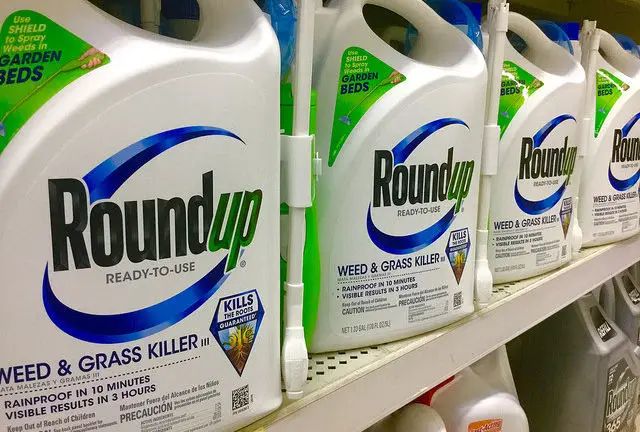The Isle of Wight Council has confirmed it will continue to use glyphosate-based weedkillers, despite a landmark court case which linked the chemical to cancer.
On 11th August, chemical company Monsanto, which manufactures Roundup and other herbicide products, was ordered to pay former groundskeeper Dewayne Johnson £289 million in damages after a jury in San Francisco said the chemical contributed ‘substantially’ to his terminal cancer.
Use of Roundup
Roundup, the commercial name of glyphosate-based herbicides, contains many other chemicals, which when mixed together are a thousand times more toxic than glyphosate on its own.
A spokesperson for the Isle of Wight council said,
“At present, the council currently use glyphosate-based weedkillers in our grounds maintenance contract, as do most ground contractors around the country.”
Not banned in the UK
The council said it had been advised the product was still safe to use and not banned in the UK. However, this is under review based on any potential future advice from the European Chemicals Agency ECHA.
The ECHA committee for risk assessment stated that herbicide glyphosate should not be classified as carcinogenic in the EU.
Lowthion: Weedkiller “damage to biodiversity, soil quality and environment”
Green party parliamentary candidate for the Isle of Wight, Vix Lowthion, urged the council to review the use of the chemical.
She said:
“I urge the IW Council and Island Roads to explore alternatives to the use of this toxic chemical on Island streets.
“Whilst it may be effective at killing weeds, it also does a good deal of damage to biodiversity, soil quality and the environment.
“France and Germany are already involved in the process of banning glyphosate. The Isle of Wight should take the lead — and look at taking glyphosate off our streets for good.”
She added Hammersmith and Fulham had been using a glyphosate-free foam with success for the last two years.
Court case appeal
Monsanto intends to appeal the ruling and continues to deny any link between glyphosate and cancer. It faces another 4,000 court cases across America.
In June, Monsanto was taken over by German firm Bayer.
In a statement, Bayer said:
“Bayer is confident, based on the strength of the science, the conclusions of regulators around the world and decades of experience, that glyphosate is safe for use and does not cause cancer when used according to the label.”
This article is from the BBC’s LDRS (Local Democracy Reporter Service) scheme, which OnTheWight is taking part in. Some additions by OnTheWight. Ed
Image: jeepersmedia under CC BY 2.0





